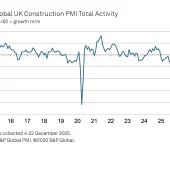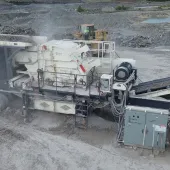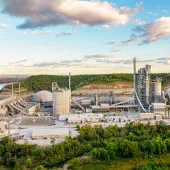FAST Act to deliver moderate rise in demand

Analysis shows projected increase in US demand for aggregates from fiscal year 2016 to 2020
IN a recent analysis commissioned by the National Stone, Sand & Gravel Association (NSSGA), demand for aggregates shows a projected moderate increase through the years of the recently passed highway bill – the Fixing America’s Surface Transportation (FAST) Act.
The FAST Act, adopted by Congress and approved by the president in December 2015, injects US$305 billion into the federal transportation budget from fiscal year 2016 through to 2020.
It is the first long-term investment in infrastructure in the US in more than a decade. The funds will allow states to purchase and use an additional 114 million tonnes of aggregates, allowing more roads, highways and bridges to be built, improved and maintained.
The analysis shows a corresponding increase in the demand for aggregates with increased federal dollars in the first few years. However, FAST Act impact peaks in 2018, after which projected higher interest rates and inflation will reduce the impact of the federal programme.
‘The FAST Act’s five years of funding certainty creates the much-needed stability to enable state governments to plan and implement larger projects again,’ said NSSGA president and chief executive officer Michael W. Johnson.
‘The new highway bill, coupled with an increased demand for all types of construction, will require more raw materials such as stone, sand and gravel. This is a good sign for the aggregates industry and for America.’
David Chereb, executive vice-president and chief economist with S-C Market Analytics, who carried out the analysis, also broke down the forecast for individual regions and states.
‘The Southeast, West, Mountain and some Northeastern regions of the US fare the best under the FAST Act, whereas other states, especially those impacted by the fracking boom, face a pronounced correction,’ he said.
S-C Market Analytics also predict an economic decline starting in 2017 as higher interest rates, slowing markets in China and Europe, and low energy prices, put a significant dent in demand for aggregates.
‘If the economists are right and a slowdown is on the way for 2017 and 2018, the funding certainty of the FAST Act will prove even more meaningful,’ said Michael W. Johnson. ‘I would hate for the federal highway programme to be lurching from short-term extension to short-term extension again during a broad economic downturn.’
He added that the fight over highway funding is not over because Congress failed to include a permanent and growing revenue solution.
‘The nation’s infrastructure needs are far greater than the funding provided by the FAST Act. Unless we push Congress to address this shortfall, we will face the same funding cliff that we have had to deal with for the past decade when the programme expires in 2020.’









